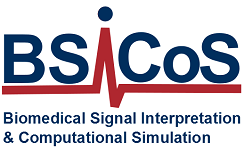-
Projects
Effects of an early neurocognitive intervention on patient-ventilator interaction and stress in critically ill patients receiving mechanical ventilation (PVI-ANS-NCOG)
Start date
2015
End date
2017
Coordinator
Raquel Bailón
Funding agency
CIBER – ISCIII
Critically ill patients with acute respiratory failure (ARF) often need mechanical ventilation (MV) as a vital support tool, even though its adverse effects such as patient-ventilator asynchronies, dyspnea or air hunger. These MV effects, along with other ICU stay variables, may increase the stress levels of the critically ill patients. In fact, these stress levels may influence, and even perpetuate, patient-ventilator uncoupling. Stress is a physiological response of the autonomous nervous system (ANS) experienced on encountering a threatening situation. Stress resulting in an increase in respiratory rate, heart rate and blood pressure and it can directly affects cognition by the activation of the hypothalamic–pituitary–adrenal (HPA) axis and release of glucocorticoid stress hormones. Moreover, stress can worsen patient-ventilator interaction (PVI). Cognitive and psychopathological impairments are extremely common in survivors of critical illness, suggesting that approximately one third of patients or more will develop chronic neurocognitive impairment. The consequences of this long-term cognitive deficit contribute to a decreased ability to perform activities of daily living, a decreased quality of life, increased medical costs and the inability to return to work. The personal and economic costs related to cognitive and psychopathological impairments in ICU survivors highlight the need to develop new ICU patients’ management techniques which could prevent the cognitive and psychopathological impairment. However, measuring stress in ICU patients may result complicated due to the variability of diagnosis, patients’ clinical characteristics and managements required. An appropiate stress measure as well as an adecuated registre of patient-ventilator asynchronies will allow to demostrate the effect of an early intervention in ICU patients.
The aim of the present project is to study the effect of an early neurcognitive intervention on decreasing stress levels and ameliorating patient-ventilator interaction during ICU patients’ stay. Furthermore, we pretend to explore the impact of these effects in the short- and long-term cognitive and psychopathological outcome of the ICU survivors.
A randomized clinical trial will be performed in 80 critically ill patients with ARF undergoing MV without previous neurological and/or psychiatry disease. Demographic and physiological variables (cardiac, hemodynamic and respiratory scalars) will be constantly monitored and registered in participants during all ICU stay. An early neurocognitive intervention based in relaxation and low cognitive load exercises will be administered to the experimental group. A comprehensive neurocognitive and psychopathological assessment will be performed at hospital discharge and 3 months follow-up.
Participants receiving the early neurocognitive intervention are expected to decrease PVI and reduce stress levels related to MV during ICU stay and to maintain cognitive and psychopathological status comparing with the control group.
